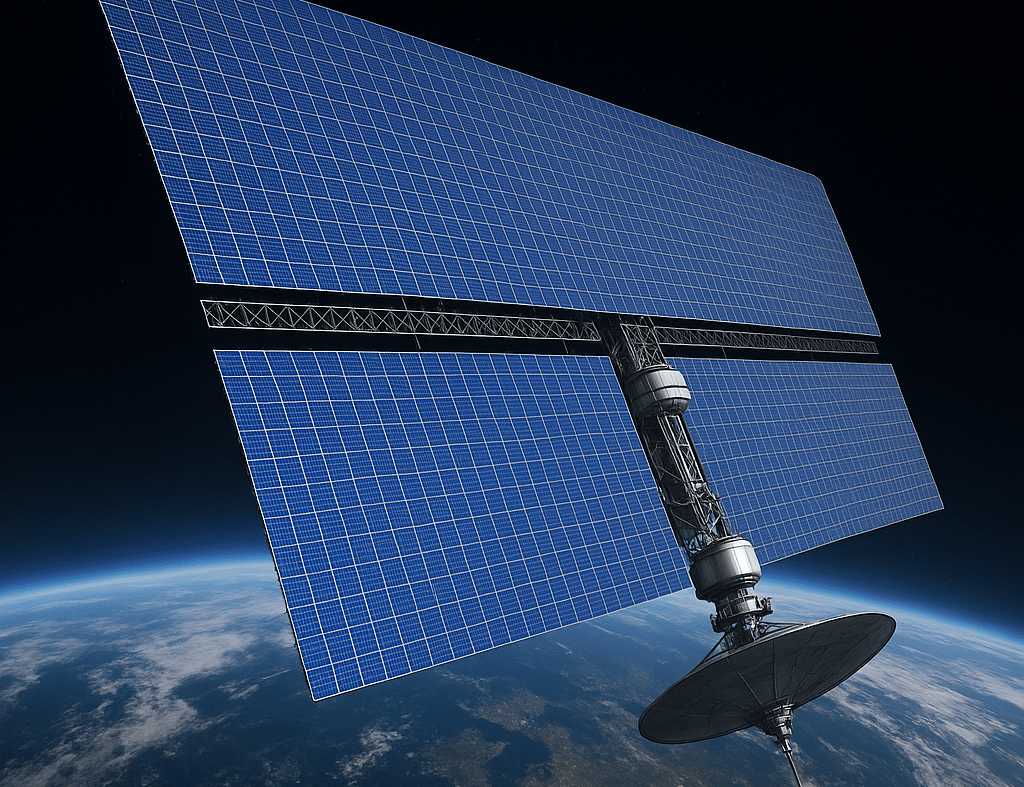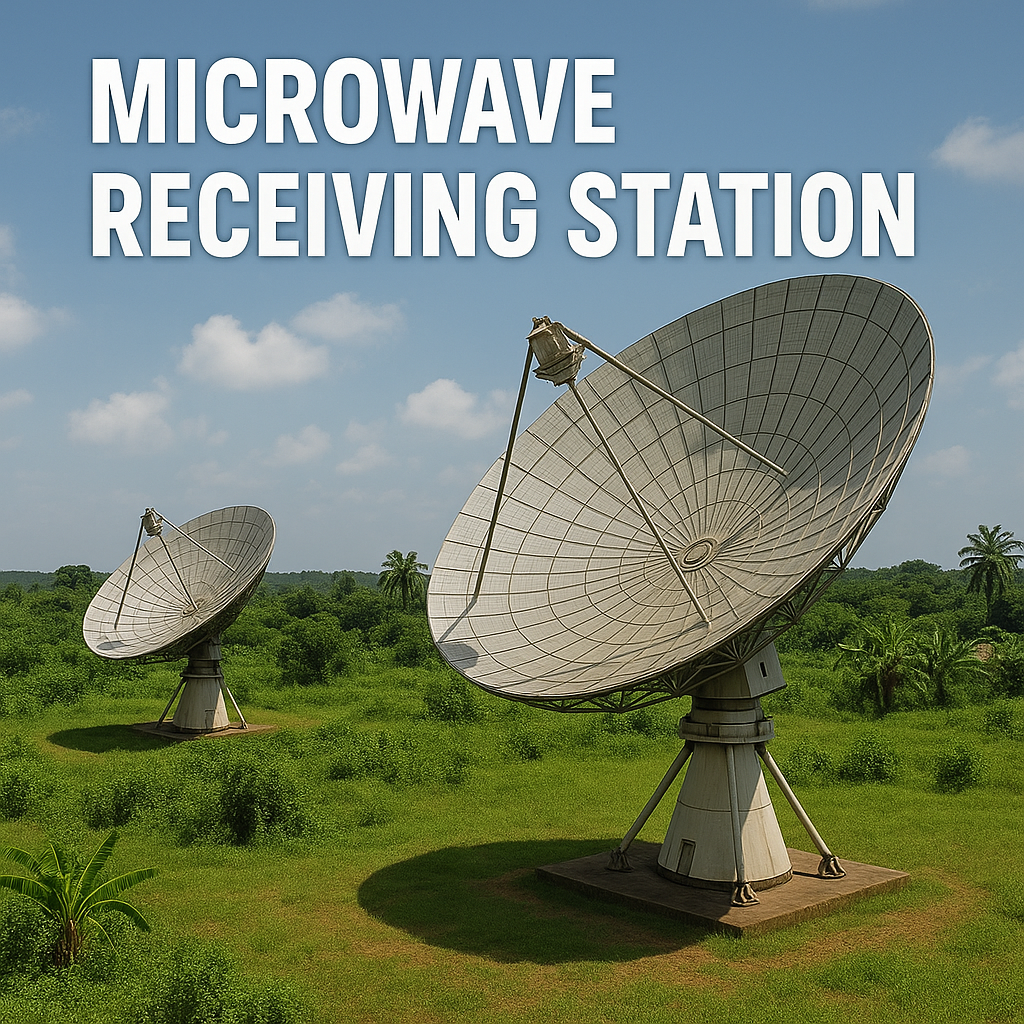
From Darkness to Orbit: Can Nigeria Plug Into the Sun at 36,000km?
As millions in Nigeria endure daily blackouts and noisy generators, China is preparing to beam sunlight from space. Can a country struggling to power its capital lead in this futuristic solution, or will subnational actors and private investors take the lead?
GENERAL BUSINESS TOPICSGENERAL TOPICSSCIENCE & TECHNOLOGY


While Nigeria groans under the weight of chronic power failure, soaring generator fuel costs, and decaying infrastructure, I was struck by a bold contrast: news of the State House—the seat of the nation's presidency—potentially disconnecting from the national grid to install a ₦10 billion solar power system. At a time when ordinary Nigerians can’t trust light bulbs to stay on, the leaders’ apparent escape from national energy misery sends a loud message: every man for himself.
And just as I reflected on that, I stumbled upon China's jaw-dropping plan to install a solar power station in space—36,000 kilometers above Earth. This orbital solar plant, once operational, will continuously harvest energy and beam it back to Earth via microwaves, bypassing clouds, nightfall, and all the earthly troubles that cripple our power supply.
At full capacity, it will generate 100 billion kilowatt-hours (kWh) annually, far more than Nigeria generates in an entire year from all sources combined. It’s clean, consistent, and powerful. Unlike the power plants Nigeria builds, this one will never shut down due to flooding, sabotage, fuel scarcity, or unpaid workers.
The technology behind the magic:
China began building the Chongqing Space Solar Power Plant in 2019. Using heavy-lift Long March-9 rockets, it’s assembling the station piece by piece in geostationary orbit. The plan is for the collected solar energy to be converted into microwaves and transmitted down to Earth where it can be captured by receiver stations. Early limitations in transmission efficiency are improving rapidly, thanks to global innovations like Caltech’s 2023 trials.
This isn’t just science fiction—it’s happening. And while the U.S., Japan, and others are racing to catch up, China is already positioning this project as the new Three Gorges Dam of clean energy.
So, I wondered: Where is Nigeria in all this? More importantly, can Nigeria benefit?
How Nigeria could benefit:
Nigeria can, indeed, benefit in many ways:
1. Energy Import via Receiver Stations:
Nigeria doesn’t need to launch anything into space. It just needs ground-based receiver stations. These would collect the beamed energy and feed it into the national grid, or bypass it entirely in areas where the grid barely exists.


Ground-based receiver stations use rectennas—antenna arrays that safely convert microwave beams into electricity. Shielding, frequency control, and beam precision ensure energy transmission is non-ionizing, safe for humans, animals, and the environment.
2. Expansion of Power Access:
This could be a game-changer in places like rural Abia State, Sokoto, the industrial hubs of Lagos, or the creeks of the Niger Delta. Clean power, around the clock, untouched by rain, rust, or rotten cables.
3. Partnerships and Innovation:
China’s Belt and Road Initiative and other climate-oriented investments could provide Nigeria with access through bilateral or multilateral frameworks. Private companies or state governments could be early adopters if they move quickly.
4. Leapfrogging Grid Decay:
Nigeria’s grid is so broken that it’s easier to skip it altogether. Space-based power lets us do what mobile phones did to landlines: leapfrog straight into the future.
But here’s the problem:
Sadly, Nigeria might not be ready!
Not technically. Not politically. Not strategically. The federal bureaucracy is slow, and international negotiations are often muddled by corruption, short-term thinking, and lack of technical foresight.
Even if China opens the door, Nigeria may be too distracted to notice.
That’s why the solution may not lie in Abuja.
States like Abia or Rivers could lead
States have the constitutional authority to engage in independent power projects. What if Abia State or Rivers State, in collaboration with private energy firms and tech investors, took the bold step to host Nigeria’s first space solar receiving station?
Imagine a private-public partnership that:
Leverages China’s technology.
Uses state land and regulation flexibility.
Offers companies tax incentives to build and operate space-energy receivers.
Powers thousands of homes and industries without relying on the unreliable national grid.
It would create a model other states could follow—and attract the kind of global investment that doesn’t come from oil.
Here’s what I’m saying:
Nigeria should not miss the beam!
China is preparing to send solar power down from space. But unless Nigeria—and its forward-thinking states—reach up to receive it, the beam will pass it by.
The persistent darkness in Nigeria is not just a failure of electricity—it’s a failure of imagination.
Now is the time to look up.



